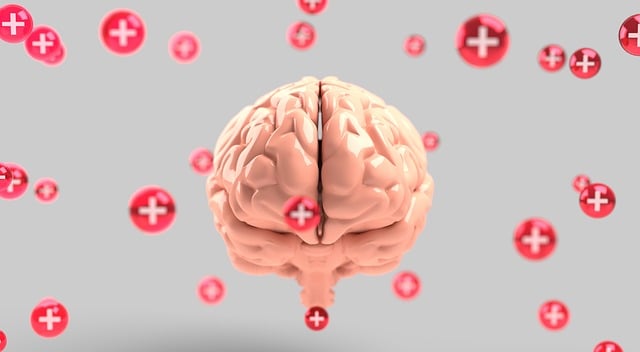Trauma significantly impacts individuals with developmental disabilities, as their neurodiversity intersects with adverse experiences. Lafayette Developmental Disability Therapy offers a holistic trauma support approach, incorporating tailored interventions and cultural sensitivity for accessible mental healthcare. They provide specialized services, including individual therapy, group support, evidence-based practices, Mental Wellness Coaching Programs, and Stress Management Workshops to help clients cope with past traumas and develop coping skills. By prioritizing holistic care through burnout prevention and risk management, LDDT aims to empower clients to overcome trauma and flourish in a nurturing setting.
Trauma support services are essential for individuals with developmental disabilities who often face unique challenges. This article explores the profound impact of trauma on this vulnerable population and highlights the critical role of Lafayette Developmental Disability Therapy in providing specialized care. We delve into strategies for designing effective support systems, focusing on accessibility and tailored interventions. By examining these approaches, we aim to empower professionals and promote healing for those who have experienced trauma, ensuring they receive the comprehensive assistance they deserve.
- Understanding Trauma and its Impact on Individuals with Developmental Disabilities
- The Role of Lafayette Developmental Disability Therapy in Trauma Support
- Designing Effective Trauma Support Services for This Specific Population
- Strategies for Implementing and Promoting Accessible Trauma Care
Understanding Trauma and its Impact on Individuals with Developmental Disabilities

Trauma, a profound and often invisible force, can significantly impact individuals with developmental disabilities, as their unique neurodiversity intersects with potentially traumatic experiences. These experiences may include abuse, neglect, or severe adversity, shaping their emotional and behavioral responses in distinct ways. For instance, those with autism spectrum disorder (ASD) might exhibit heightened anxiety or sensory processing difficulties in response to traumatic events.
Understanding the intricate relationship between trauma and developmental disabilities is paramount for effective support. Lafayette Developmental Disability Therapy emphasizes a holistic approach, recognizing that treating trauma requires tailored interventions. This involves incorporating strategies like mood management techniques to help individuals regulate their emotions and fostering the development of self-care routines for better mental health. Cultural sensitivity in mental healthcare practice is also key, ensuring that services are accessible and responsive to diverse cultural backgrounds, thereby promoting trust and positive outcomes.
The Role of Lafayette Developmental Disability Therapy in Trauma Support

Lafayette Developmental Disability Therapy (LDDT) plays a pivotal role in providing trauma support services, focusing on holistic healing for individuals affected by traumatic experiences. With a dedicated team of professionals, LDDT offers specialized programs tailored to address the unique needs of those with developmental disabilities who have endured trauma. Their comprehensive approach integrates Mental Wellness Coaching Programs and Stress Management Workshops designed to foster coping skills development, enabling individuals to navigate their traumatic pasts and thrive in the present.
Through individual therapy sessions and group support programs, LDDT creates a safe space for clients to process and express their experiences. By incorporating evidence-based practices and adaptive techniques, the organization ensures that trauma survivors with developmental disabilities receive tailored care that respects their specific challenges and promotes their mental wellness. LDDT’s commitment to community engagement also includes educational initiatives aimed at raising awareness about trauma and its impact, ultimately fostering a more supportive environment for individuals on their journey towards healing.
Designing Effective Trauma Support Services for This Specific Population

Effective trauma support services for individuals with developmental disabilities require a nuanced approach, tailored to their unique needs. At Lafayette Developmental Disability Therapy, we recognize that trauma can manifest differently in this population, often intertwined with social and communication challenges. Thus, our services go beyond traditional therapy models, incorporating specialized techniques like Social Skills Training to foster safe and supportive interactions.
We emphasize holistic care by integrating Burnout Prevention strategies for mental health professionals, ensuring sustained resilience when working with traumatically affected individuals. This involves meticulous Risk Management Planning, enabling us to create secure environments that encourage healing. Through these comprehensive approaches, we strive to offer transformative support, empowering individuals to navigate their trauma and thrive in a nurturing setting.
Strategies for Implementing and Promoting Accessible Trauma Care

Implementing accessible trauma care requires a multi-faceted approach that caters to individuals with developmental disabilities, such as those supported by Lafayette Developmental Disability Therapy. Firstly, community outreach and education are vital to raise awareness about available resources. This can be achieved through partnerships with local organizations, schools, and healthcare providers to disseminate information on trauma-informed practices. By promoting understanding of trauma and its impact, communities can foster a supportive environment where individuals feel comfortable seeking help.
Additionally, integrating resilience-building strategies into therapy and support services is essential. Encouraging coping mechanisms, fostering strong support networks, and teaching stress management techniques empowers individuals to navigate traumatic experiences more effectively. For mental health professionals, risk management planning becomes crucial. This involves ensuring therapists are equipped with the necessary skills to handle complex cases, while also prioritizing self-care to prevent burnout. Such proactive measures will ultimately enhance service accessibility and improve outcomes for those in need of trauma support.
In light of the profound impact trauma can have on individuals with developmental disabilities, it’s clear that specialized services like Lafayette Developmental Disability Therapy are essential. By understanding the unique needs of this population and implementing effective strategies, we can ensure accessible trauma care that promotes healing and empowers individuals to lead fulfilling lives. Integrating evidence-based practices and community collaboration, as discussed in this article, paves the way for a more supportive and inclusive environment where everyone has the chance to recover from trauma.












